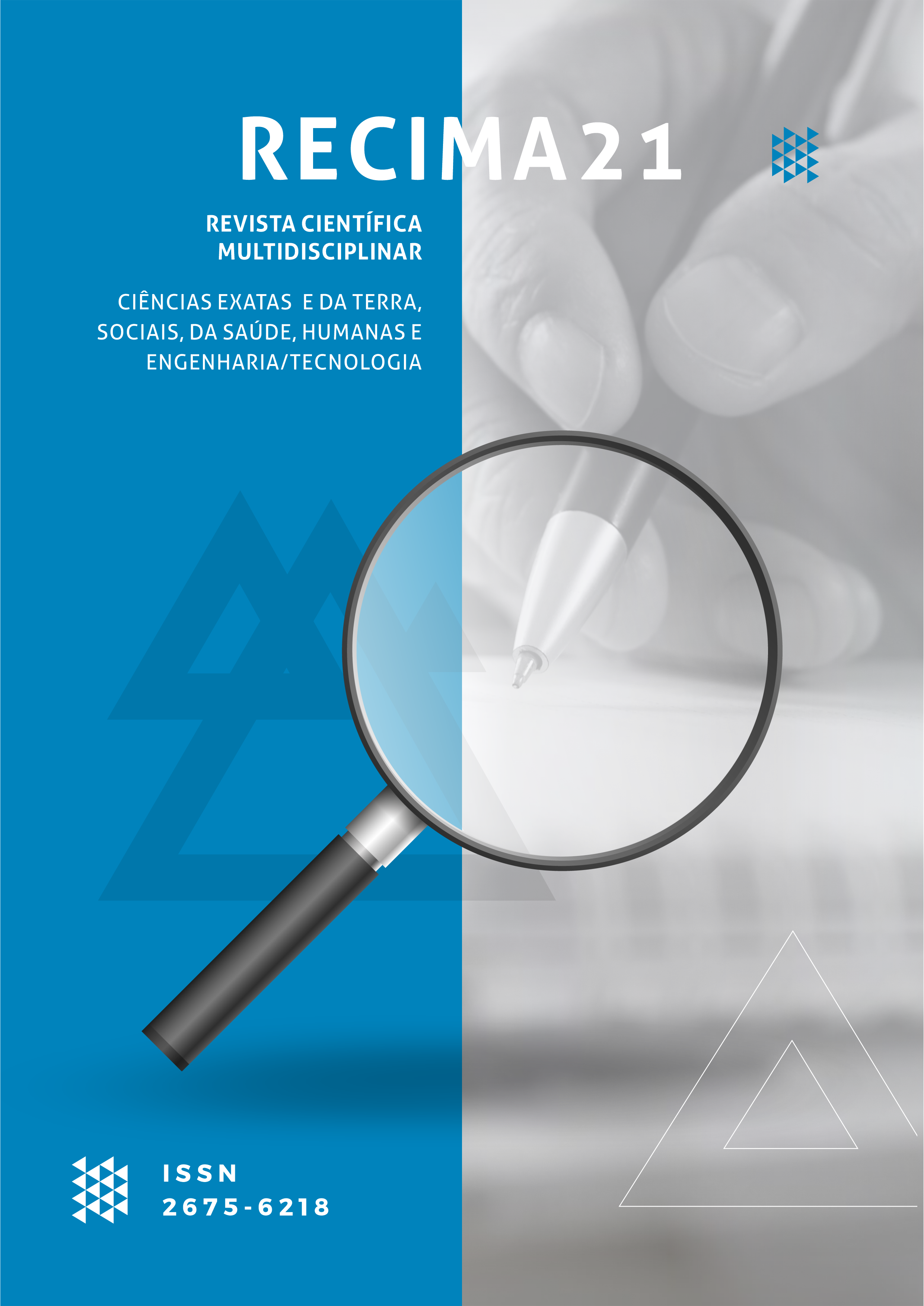DESAFÍOS EN EL MANEJO DE LA ESCLEROSIS MÚLTIPLE TEMPRANA EN UN NIÑO DE 5 AÑOS: INFORME DE CASO
DOI:
https://doi.org/10.47820/recima21.v3i12.2247Palabras clave:
Esclerosis Múltiple temprana. Es una enfermedad inflamatoriaResumen
Nuestro estudio reporta el caso de un niño con Esclerosis Múltiple temprana. Es una enfermedad inflamatoria del Sistema Nervioso Central más común en adultos, considerada muy rara en la primera década de la vida. El paciente tenía 5 años cuando sufrió ataques agudos de ataxia y paparesis. La resonancia magnética de cerebro mostró lesiones compatibles con la enfermedad, aunque el líquido cefalorraquídeo no detectó cambios típicos. Hubo recuperación de brotes y dificultades en el uso de tratamiento inmunomodulador. Refleja que el diagnóstico y manejo en niños y adolescentes es más difícil, ya que presentan síntomas inespecíficos que abren un abanico de diferentes diagnósticos diferenciales. Por lo tanto, nuestro informe destaca las diferencias entre la esclerosis múltiple en adultos y niños y las dificultades en esta población específica.
Descargas
Citas
Wendel‐Haga M, Celius E. Is the hygiene hypothesis relevant for the risk of multiple sclerosis? Acta Neurologica Scandinavica 2017;136:26-30.
Brenton JN, Kammeyer R, Gluck L, Schreiner T, Makhani N. Multiple Sclerosis in Children: Current and Emerging Concepts. Seminars in neurology; 2020: Thieme Medical Publishers: 192-200.
da Gama ABCN, Lacativa MCS, da Costa Pereira FFC, Alvarenga RMP. Prevalence of multiple sclerosis in Brazil: A systematic review. Multiple sclerosis and related disorders 2015;4:572-579.
Leray E, Moreau T, Fromont A, Edan G. Epidemiology of multiple sclerosis. Revue neurologique 2016;172:3-13.
Lassmann H. Pathogenic mechanisms associated with different clinical courses of multiple sclerosis. Frontiers in Immunology 2019:3116.
Sommer RC, Hata J, de Medeiros Rimkus C, da Costa BK, Nakahara J, Sato DK. Mechanisms of myelin repair, MRI techniques and therapeutic opportunities in multiple sclerosis. Multiple Sclerosis and Related Disorders 2021:103407.
Hung P-C, Wang H-S, Chou M-L, Lin K-L, Hsieh M-Y, Wong AM. Acute disseminated encephalomyelitis in children: a single institution experience of 28 patients. Neuropediatrics 2012;43:064-071.
An Q, Fan C, Xu S. Childhood multiple sclerosis: clinical features and recent developments on treatment choices and outcomes. Eur Rev Med Pharmacol Sci 2018;22:5747-5754.
McKay KA, Hillert J, Manouchehrinia A. Long-term disability progression of pediatric-onset multiple sclerosis. Neurology 2019;92:e2764-e2773.
Alroughani R, Boyko A. Pediatric multiple sclerosis: a review. BMC neurology 2018;18:1-8.
Mirza A, Forbes JD, Zhu F, et al. The multiple sclerosis gut microbiota: A systematic review. Multiple Sclerosis and Related Disorders 2020;37:101427.
Tremlett H, Waubant E. The gut microbiota and pediatric multiple sclerosis: recent findings. Neurotherapeutics 2018;15:102-108.
Eskandarieh S, Sahraiain MA, Molazadeh N, Moghadasi AN. Pediatric multiple sclerosis and its familial recurrence: a population based study (1999–2017). Multiple sclerosis and related disorders 2019;36:101377.
Luca M, Ortega-Castro N, Patti F. Paediatric Multiple Sclerosis: A Scoping Review of Patients’ and Parents’ Perspectives. Children 2021;9:11.
Duquette P, Murray TJ, Pleines J, et al. Multiple sclerosis in childhood: clinical profile in 125 patients. The Journal of pediatrics 1987;111:359-363.
Forrester MB, Coleman L, Kornberg AJ. Multiple sclerosis in childhood: clinical and radiological features. Journal of child neurology 2009;24:56-62.
Gorman MP, Healy BC, Polgar-Turcsanyi M, Chitnis T. Increased relapse rate in pediatric-onset compared with adult-onset multiple sclerosis. Archives of neurology 2009;66:54-59.
Benson L, Healy B, Gorman M, et al. Elevated relapse rates in pediatric compared to adult MS persist for at least 6 years. Multiple sclerosis and related disorders 2014;3:186-193.
Boiko A, Vorobeychik G, Paty D, Devonshire V, Sadovnick D. Early onset multiple sclerosis: a longitudinal study. Neurology 2002;59:1006-1010.
Renoux C, Vukusic S, Mikaeloff Y, et al. Natural history of multiple sclerosis with childhood onset. New England Journal of Medicine 2007;356:2603-2613.
Amato MP, Krupp LB, Charvet LE, Penner I, Till C. Pediatric multiple sclerosis: cognition and mood. Neurology 2016;87:S82-S87.
Banwell B, Reder A, Krupp L, et al. Safety and tolerability of interferon beta-1b in pediatric multiple sclerosis. Neurology 2006;66:472-476.
Tenembaum SN, Banwell B, Pohl D, et al. Subcutaneous interferon Beta-1a in pediatric multiple sclerosis: a retrospective study. Journal of child neurology 2013;28:849-856.
Waubant E, Hietpas J, Stewart T, et al. Interferon beta-1a in children with multiple sclerosis is well tolerated. Neuropediatrics 2001;32:211-213.
Kornek B, Bernert G, Balassy C, Geldner J, Prayer D, Feucht M. Glatiramer acetate treatment in patients with childhood and juvenile onset multiple sclerosis. Neuropediatrics 2003;34:120-126.
Baroncini D, Zaffaroni M, Moiola L, et al. Long-term follow-up of pediatric MS patients starting treatment with injectable first-line agents: a multicentre, Italian, retrospective, observational study. Multiple Sclerosis Journal 2019;25:399-407.
Huppke P, Huppke B, Ellenberger D, et al. Therapy of highly active pediatric multiple sclerosis. Multiple Sclerosis Journal 2019;25:72-80.
Descargas
Publicado
Cómo citar
Número
Sección
Categorías
Licencia
Derechos de autor 2022 RECIMA21 - Revista Científica Multidisciplinar - ISSN 2675-6218

Esta obra está bajo una licencia internacional Creative Commons Atribución 4.0.
Os direitos autorais dos artigos/resenhas/TCCs publicados pertecem à revista RECIMA21, e seguem o padrão Creative Commons (CC BY 4.0), permitindo a cópia ou reprodução, desde que cite a fonte e respeite os direitos dos autores e contenham menção aos mesmos nos créditos. Toda e qualquer obra publicada na revista, seu conteúdo é de responsabilidade dos autores, cabendo a RECIMA21 apenas ser o veículo de divulgação, seguindo os padrões nacionais e internacionais de publicação.

 Clique para ver detalhes
Clique para ver detalhes 











